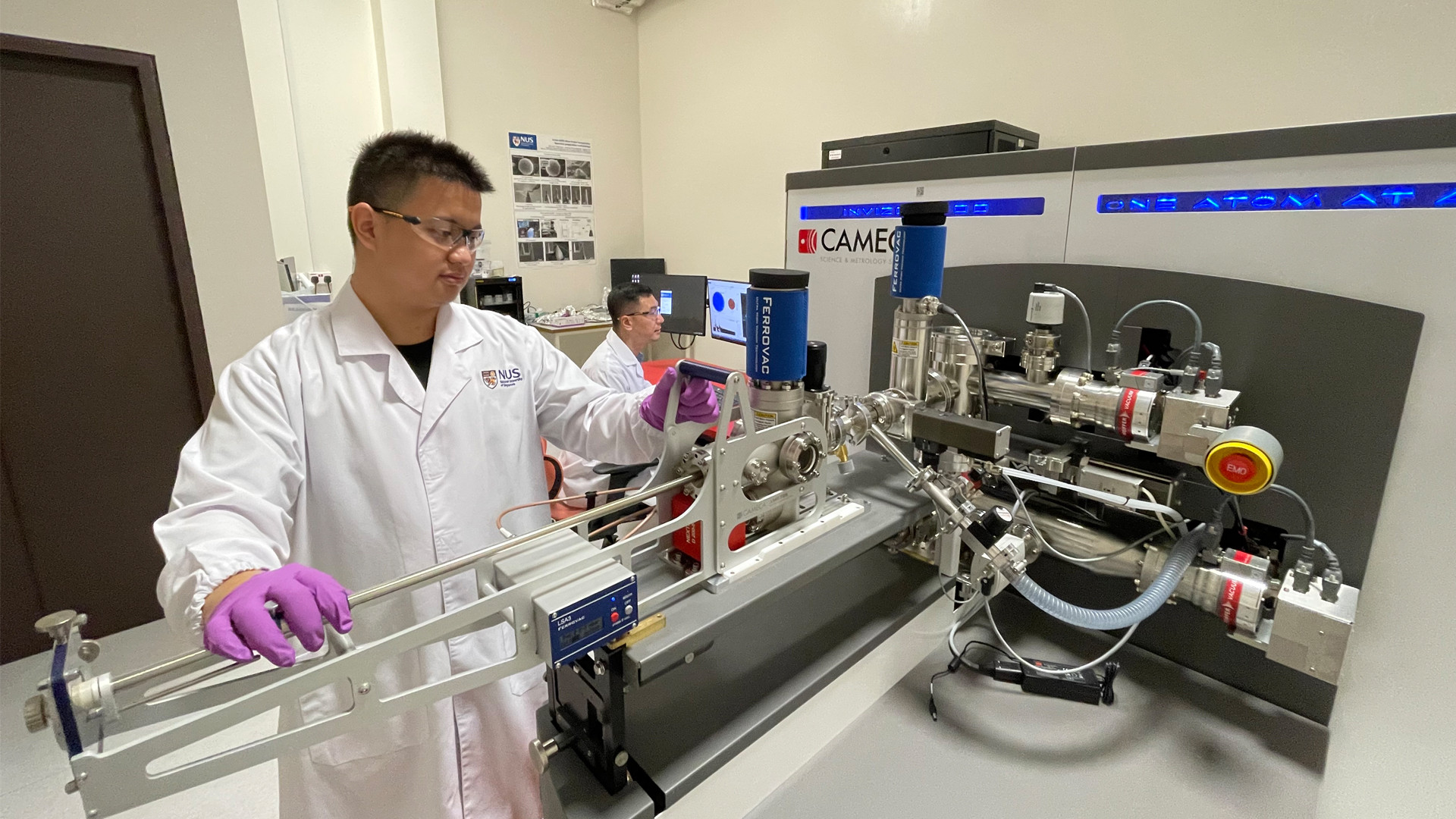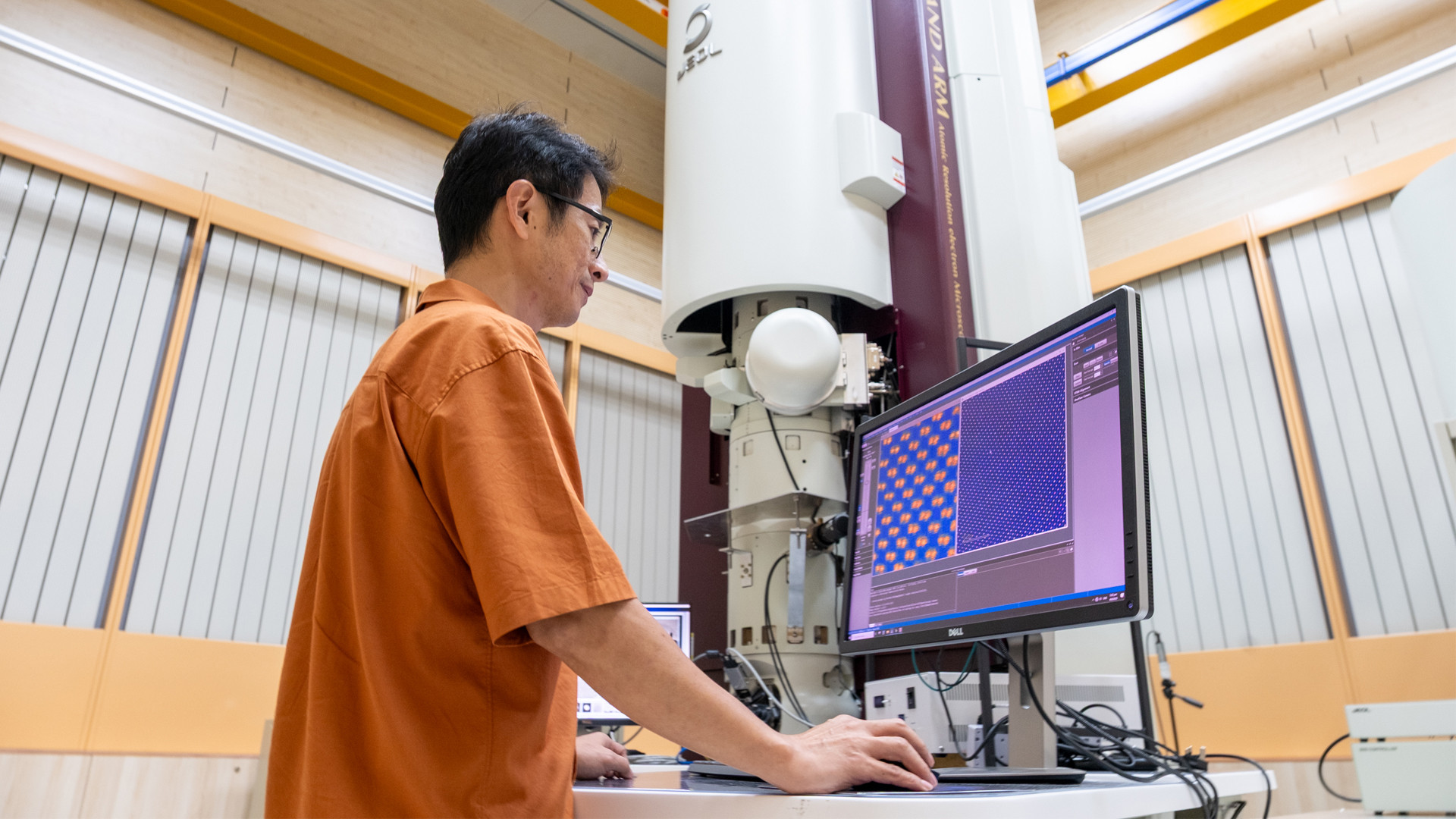
To push the frontiers of scientific research in Singapore, the National University of Singapore (NUS) and Nanyang Technological University, Singapore (NTU Singapore) are renewing their commitment to share high-value research equipment and facilities.
Providing scientists from both universities with access to cutting-edge, multi-million dollar research infrastructure at NUS and NTU Singapore will foster deeper collaboration, enabling more joint research projects, co-authored publications, and stronger funding opportunities.
Such partnerships strengthen institutional ties and promote a culture of knowledge sharing. They broaden training and development by equipping students and researchers with specialised tools and cross-institutional expertise. This leads to higher-quality research, faster innovation, and more effective industry engagement.
NUS President Professor Tan Eng Chye said, "This is an excellent win-win partnership between NUS and NTU which serves as a force multiplier in amplifying our research capabilities and accelerating discoveries with greater scale and impact. Both universities hold complementary strengths in talent, innovation and infrastructure. By combining critical resources and expertise, we will be in a stronger place to accelerate scientific breakthroughs and drive real-world impact locally and internationally. Researchers from both universities are currently collaborating extensively on a wide variety of projects, and we are excited to see these efforts grow even further and champion new solutions to complex challenges."
NTU President Professor Ho Teck Hua said, "As Singapore's two largest universities, NTU and NUS compete on the global stage. By partnering with each other through shared research facilities, we are better positioned to enhance Singapore's standing in global research."
"Sharing high-end equipment empowers our scientists to increase the impactful research they do, fosters deeper research collaborations, and encourages mutual learning. It also helps us maximise efficiencies in utilising research infrastructure," added Prof Ho.
At NUS, NTU researchers can access advanced tools such as the Invizo 6000 3D Atom Probe microscope - one of seven in the world and the first in ASEAN - which allows 3D imaging and chemical analysis of materials at the atomic level. The equipment allows atom probe tomography to be carried out, which is especially useful for studying how elements are distributed in semiconductor devices, the structure of advanced alloys, and how atoms move in energy materials used in batteries and fuel cells. Its high precision makes it a key tool for developing next-generation materials and devices.
High-end equipment in NTU available to NUS scientists includes an ultra-powerful microscope, called an aberration-corrected transmission electron microscope with energy dispersive X-ray spectroscopy, electron energy loss spectroscopy, and holography capabilities. It allows researchers to clearly see single columns of atoms in a material at high resolution, identify what elements it is made of, understand the properties of the bonds between the atoms, and visualise the invisible electric and magnetic fields around them. With the microscope, scientists can study materials to make better quantum computers, design more effective nanoparticles for medical diagnoses and drug treatment, as well as develop novel materials for construction and manufacturing.
The sharing arrangement builds on existing research and innovation partnerships between NUS and NTU, including jointly leading research for the Sustainable Tropical Data Centre Testbed, the world's first testbed in the tropics to advance energy-efficient data centre cooling solutions.
The two universities, together with global investment company Temasek, have also embarked on a joint pilot programme to accelerate the creation of successful deep-tech start-ups from the pipeline of research at NUS and NTU.







